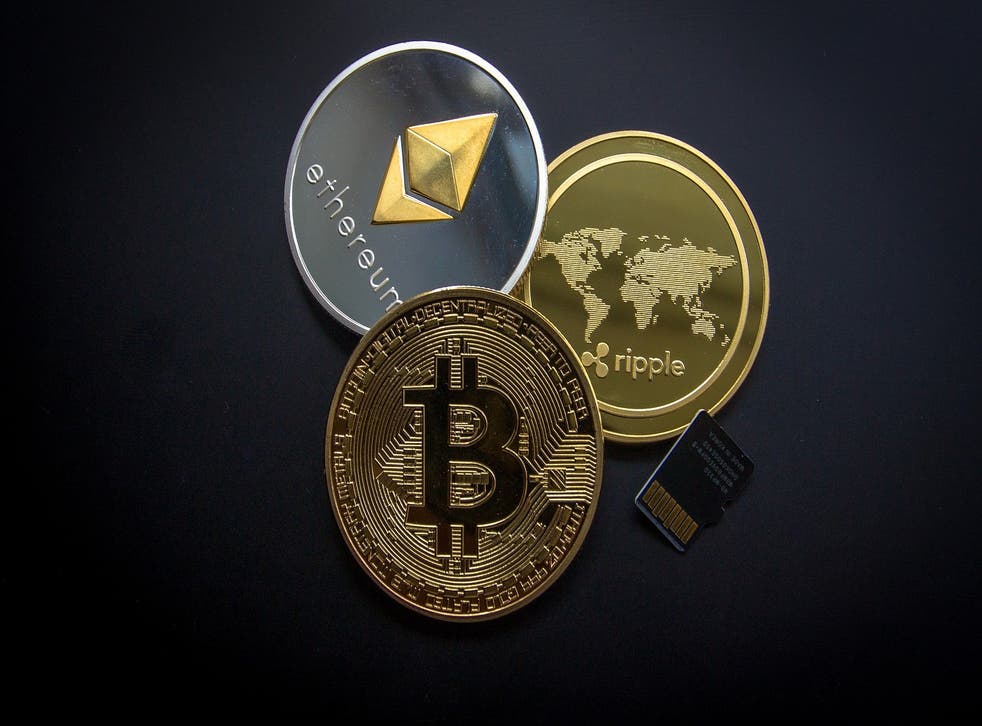This text was a response to a ‘blog’ I found on a well known ‘Q&A’ site. However I found it valuable enough to have its own space on my blog.
Interesting piece, however, failing at some severe points (as I just commented on one of your answers elsewhere, I thought lets see what Roger Baker writes beyond answers).
It starts here (well actually in some incorrect presuppositions made regard ability to generalize groups or even individuals with a certain worldview):
We may or may not be children of God, but we are indubitably children of the universe, and it is physical and insentient. If, as cosmology teaches, the universe is cold, impersonal and pointless, devoid of any framework of intentional, the problem of meaning forces itself upon one.
It seems as a very rational thing to say: We are either this or that, but one can not deny one of them. However, cosmology doesn’t teach anything, not even by its findings. It only shows what is observable and deductible and painfully our interpretations are always personal. Besides that, calling it ‘pointless’ would seem as if the universe has no ‘goal’. Though it doesn’t have a ‘deliberate’ goal, it is not without point. Just like crystallizing water creates intrinsic webs of ice, it is due to removal of heat. Such is also the fact that the universe becomes more and more complex due to the binding of elements, it is not pointless. It has a direction to move to. Life seems (as we now know the working of folding of proteins, build from simple amino acids) inevitable in situations common to our own Earth atmosphere.
Of course it is not intentional, why would it? A rock falls from a pile, does it have an intention? No. If it hits your toe, still no intention.
The induction (or the need to) of meaning is a post hoc fallacy. See, we are a species that has learned to change the simple ‘pattern recognition’ behavior that is in all life (flora and fauna) to survive, into the ability to plan depending on it by choice. We changed the: ‘It will happen’, to ‘it has to happen’. This is the cause of animism and from that religion at the start of humanity.
As is proven by research and logic (as we know can see, as an individual, the far reaches of space and the inner working of our own body), we individually can deduct and induct how causality causes, but not bring meaning. We are born to die, we procreate to survive. That is one of the definitions of life. So, whether you quote William James or someone else, it doesn’t change that observably we can individually and as humanity as a whole, tell that the biological bonds between kin, are causing the natural cause for procreation and the meaning (again from biological point of view) for our life. However, humans have one thing over other animals: choice. A deliberate and cognitive choice. Even the ‘smartest’ animals will behave on instinct, not rendered mental concepts.(Humanistic meaning)
Whether life has a meaning, depends on whether we give it one (Our own meaning). Or we are indoctrinated with one (religious meaning).
—————
I don’t take physicists or philosophers to quote them for ‘knowledge’. This is something an individual has to come to on his/her own accord. The scientist or wise person, or even just intelligent person can be a proxy or ‘enabler’, but it is your own mind that should try to find the answers, the ‘truth’ in your personal world. I guess we agree on that (though we might disagree on how that should go).
Lets leave out the religion part for the moment, as we seem to stand on different sides of the door and (the metaphore isn’t meant to be mean) I enjoy the sun on my face on the outside of it.
I will answer your ‘question’ regarding meaning, if you do too from your perspective (only your own words, not refering to your earlier writing or others).
You ask two separate things:
- How do we give meaning to life?
- Why give meaning to life if its meaning ends at death?
The additional points are valid questions regarding the fear people have not having chosen the right meaning for their lives.
For the first question, how do we give meaning to life, I could say that is a spiritual journey for many. Many others (if not most) get the meaning of their life directed by parents, society or general culture (In India the cohesion between country, religion, culture and societies are so strong, there is hardly a difference. This is also the reason).
I shared the second link, to show you have for instance the book of Genesis does ‘teach’ us things, but not about the actual words but the intrinsic nature of the human mind. How awareness (growth of level of cognitive abilities like recognition of causality and ability to form abstract concepts) has altered the realisation of self and the influence of our view of self on the world around us.
Why do I explain this? Because this is where the meaning of our life comes from. Do ants think of a reason for their life? Or the meaning of it all? No, they are fully functional lifeforms, immersed in emotional instinctive behavior. It gets them from a to b and from life to death. This goes for all lifeforms without cognitive abilities like humans (as far as we are aware we are the only ones on this planet currently)..
Why do some think that there must be a reason/meaning for their life outside of their own mind? Because of the lack of awareness of causality. The lack of understanding how things work if there is no mind to observe it (you call this the non-physical, but the first link I shared shows how the mind comes from the brain, ie physical). ‘If a tree falls in a forest and nobody is there to hear it, does it make any sound?’ Yes, it does. Sound is the word we give to the sensory input of material pressure (vibrations in air, but also through more solid objects) change, recognized by our body (ears, sinus, head, haptic feeling). However, we as humans aren’t the only ones to recognize this event in our surroundings. Even if we are not there to recognize it, nor any other life form, the event still takes place. the tree’s branches will still break, the trunk will rupture, the objects around it and the ground itself will tremor. However, this already happened way before human ears existed. It didn’t have any meaning, yet happened anyway.
So, if everything has happened, yet had no meaning, like the birth of stars and the death of them, the debris becoming planets on distant solar systems after a cataclystic event like a super nova. These events also have no meaning, except for the life that eventually might emerge on such planets and becomes aware enough to observe and question their place.
The fact that humans exist, as does other life on Earth (and possibly elsewhere), does not automatically bring a meaning. If history had gone different, we might have not gained cognitive abilities to question our surrounding, though logic states that it is most likely that this was inevitable.
Once you are aware of your parents (by the time you are able to see.), you will feel identified with them. They are part of you. This is a biological bond, that is caused by evolution, because those children who don’t cling like a leaf to their parents will die first. Our emotional field has all emotions of earlier iterations of animals, but our cognition doesn’t have a direct connection with them, though it is directly/indirectly influenced by them. The very first emotion (most important for survival) is fear. Even the single cell organism responds with the most rudimentary equivalent of fear. If something takes away fluids, move away. If something is hot, the cell will (by internal mechanism) move away from it, like plants do. This is meaning for them to survive? Or is it ‘reason’? Or ‘cause’? Life in general has become more aware each iteration (aware in level of response mechanisms to influences in the cycle of a life form). Nowhere in this trajectory there was meaning induced already. This only came into existence when cognitive awareness caused the individual entity (in this case proto-human) to recognize that not all signals were required to respond instinctively to. The fact that (proto-)humanoids weren’t at the bottom of the food-chain anymore, caused their numbers to increase. More entities in a group create more communication, causing complexity of interaction and ‘language’. But with complex communication comes enlarged memory due to the nature of individual differences. Communication causes humans to seek common ground, this is something that is imperative for survival as well. After all the physical dangers outside the group, now humanity has to ensure there is no danger from inside the group too. By following specific protocols, individuals ensure early recognition of danger or possibilities to have mutual goals. Is this a meaning? Or a reason? No it is a means though. Humans haven’t been aware of it, but they have been subject to it anyway (as an object). This all shows that there is meaning in itself.
We create a meaning based on our awareness of the world. When one is unaware of causality, all meaning is one’s own mind. When one sees causility that is identifiable, one will place meaning outside him/her self, based om the identification. Mostly like children do: I act like this, so any event outside myself happening in an identifiable order will be based on the same kind of reason: a person. ‘Stupid chair’ etc.
When we become more aware of the world and have understanding that there are larger connections, it is this larger scope that provides us with meaning: We live together and are dependent on each other. So, this bond must have importance. Now we have (as humanity) evolved further and become aware of things as individuals. We are able as individuals to survive as such. We find that outside ourselves, everyone makes a meaning for their life (Buddhists make their reasons, Christians make their reasons, aboriginals make their reasons.) Because everyone has a choice based on their awareness, meaning has become individualized. But meaning is still not imbued by anything outside the mind. Cause and effect are not meaning, they are results. Taking ‘pointless’, as ‘meaningless’, yes, the universe is meaningless. We observe (and perhaps other species that have evolved into cognitive beings as well) the universe and are children. Our emotional dependency on pattern recognition (instinctive survival mechanism), causes our cognitive awareness to ‘feel’ there is a reason for things, even if it is just that false positive on danger.
Does not having a meaning in life, mean that life is meaningless? No, because our mind has emerged from the increasing complexity of manifolds, we are able to introspect, retrospect, deduct and induct on our observations (which are more than just the visuals). Yes, the only reason for our lives (biological) is to breed. What would happen if all of humanity lost the want to procreate? We would die out. Except that our biological sexual drive will cause the unaware to start breeding (having sex) anyway and cause the species to continue. This again is not a meaning, but cause and effect of biological measurements. But we give life meaning. How do we reflect on a Gorilla mother hugging their infant? How do we reflect on a Chimpanzee baby sleeping in the cultivation of its mother or father? Does it have less meaning? Or more?
Why would a human life have more meaning? The cognitive awareness? Is that what gives more meaning? Because the cognitive awareness is required to even fatom a meaning? Yet if all humans were finished off, the world would continue to turn and another species would emerge superior. Would that be the meaning for humans perishing? The cycle of life includes death. No matter what comes after. The existence as it was before you were born or a fictive eternity of mind? The implications of the wanted ‘after’, depends on the awareness one has for causality. If something doesn’t fit into the logic of reality, one will add supernatural or surreal solutions. To do so, will then cause more and more intrinsic webs of supernatural causes and reasons. But with it comes a reason and cause that is also requiring a meaning. Thus one creates a loop that will keep itself going. Worst thing is our primal emotion. When the loop is connected with fear, it is almost impossible to stop it. Life is prone on survival and to survive it needs to know it will not die. When it knows it will die, it either looses will to continue or seeks a meaning for death. The only meaning people ‘want’ for death is to continue living. The truth is, everything dies. The universe, the planet, humans, specks of dust. Dying is part of a cycle of existence. Energy – matter transformation. Direction to no direction. Movement to no movement.
But what would be wrong about it? Did you bother about life before you were born? No. You weren’t existing. IF you would imply everyone lives AFTER death, you automatically imply everyone lives before birth. Taking this into infinity, everyone would be in an infinite loop and you more likely will end up Buddhist, than anything else. If you live before birth, as what? Non-corporal? That would imply the mind or essence is not based on physical causes as we know it is. It implies we would be able to investigate mind / cognitive abilities at the moment of conception or even before (because the implication of added complexity would still have to adhere to reality). As we know, this is not so. We have been able to figure out where the mind/cognition is created and can switch it on and off.
So what is the meaning of life, if life ends? Well, for one, there is the meaning of A life and there is meaning of life. One is what it means to an individual, the other is what it means to a species or even broader, an ecosystem. Until an individual is aware of it, there is no meaning for it to discern. When it is aware, it will search for a meaning. Not that there is one, but it will search for it, because the pattern recognition that is the base of our mind, depends on search for causality. We as humans often fail to understand that causality is not meaning. It is cause and effect. The result, not the meaning.
So, if there is no meaning to life, what could we extract as the most objective ‘meaning’ we could give it?
Looking at life as it is, it is adaptation. Adaptation means learning. Learning means finding data, information and from that knowledge. This is what humanity has done. First with the increasing complexity of life itself, then its habits, then its communication, then its cognitive understanding. So, the meaning of life, in the most objective matter would be: Accumulate as much data, information and knowledge for the next generation to grow upon and extend.
I might add: To increase the positive effect of it on humanity, its habitat and entire ecosystem.











Daar lezen we het zoveelste bericht dat iemand vindt dat een regeringsinstantie of een ander institutioneel apparaat moet ingrijpen in hoe men omgaat met online gedrag.
Ik denk dat iedere weldenkende Nederlander (slash wereldburger) eens moet gaan begrijpen dat ‘online’ en ‘offline’ gedrag geen verschil moet maken. Zeker nu we allen zoveel vaker ‘online’ communiceren door de diverse restricties van de ‘offline’ wereld.
Als je in de winkel iets ziet dat volgens jou niet hoort, zeg je er dan iets van? Ik wel. Mijn identiteit wordt niet beperkt door een glazen schermpje en draadloze verbindingen. Ik ben wie ik ben. Online EN Offline.
Het zou volwassenen sieren, als ze zich online zo gedragen, als ze willen dat hun kinderen zich offline gedragen. Daarnaast ook, dat mensen offline begrijpen dat regels en wetten online ook gewoon van toepassing zijn.
Het uitleggen van gedrag aan kinderen geeft ons een spiegel als volwassenen op onszelf. Zijn wij zo verdraagzaam? Zijn wij zo tolerant? Zij wij zo mondig?
De volgende keer dat je iemand online wilt uitschelden, denk dan aan de jeugd die dat bijna tot een kunst verheven heeft en een klasgenootje de dood in kunnen drijven. Waar denk je dat ze dat vandaan hebben? Hoe zou jij als volwassene dat hebben kunnen voorkomen? Misschien door te leiden met voorbeeld?
Wees je bewust van je acties en van de observatie van jouw gedrag.
Lees je eigen berichten eens als een vreemde…zou jij dat accepteren? Zou jij je er fijn bij voelen?
#meta #bewustzijn #awareness #metawareness #eerlijkheid #opvoeding #cyberbullying #cybercrime #omdenken #spiegel #mirror #blackmirror #whitemirror #yourmirror #eyeontheworld